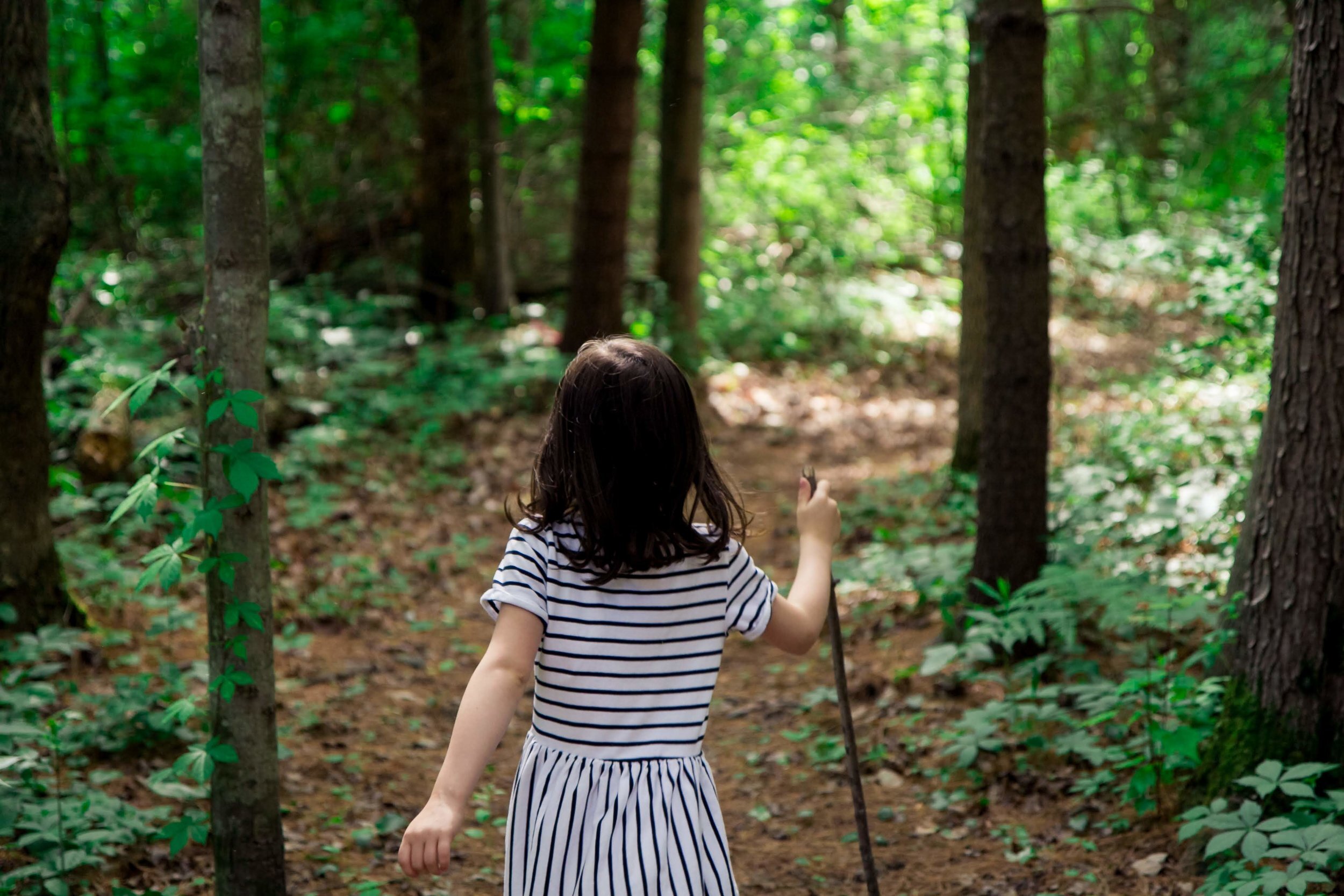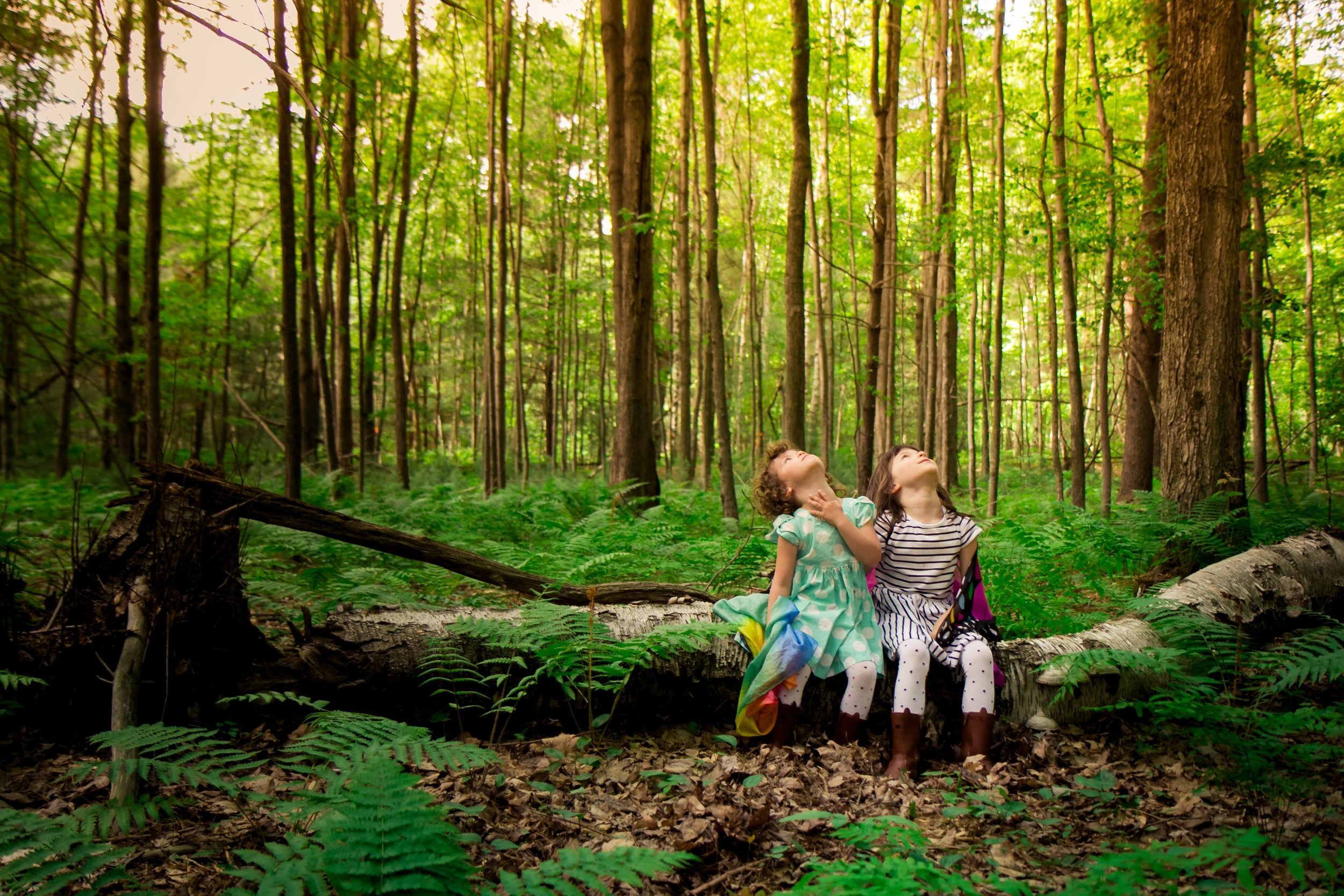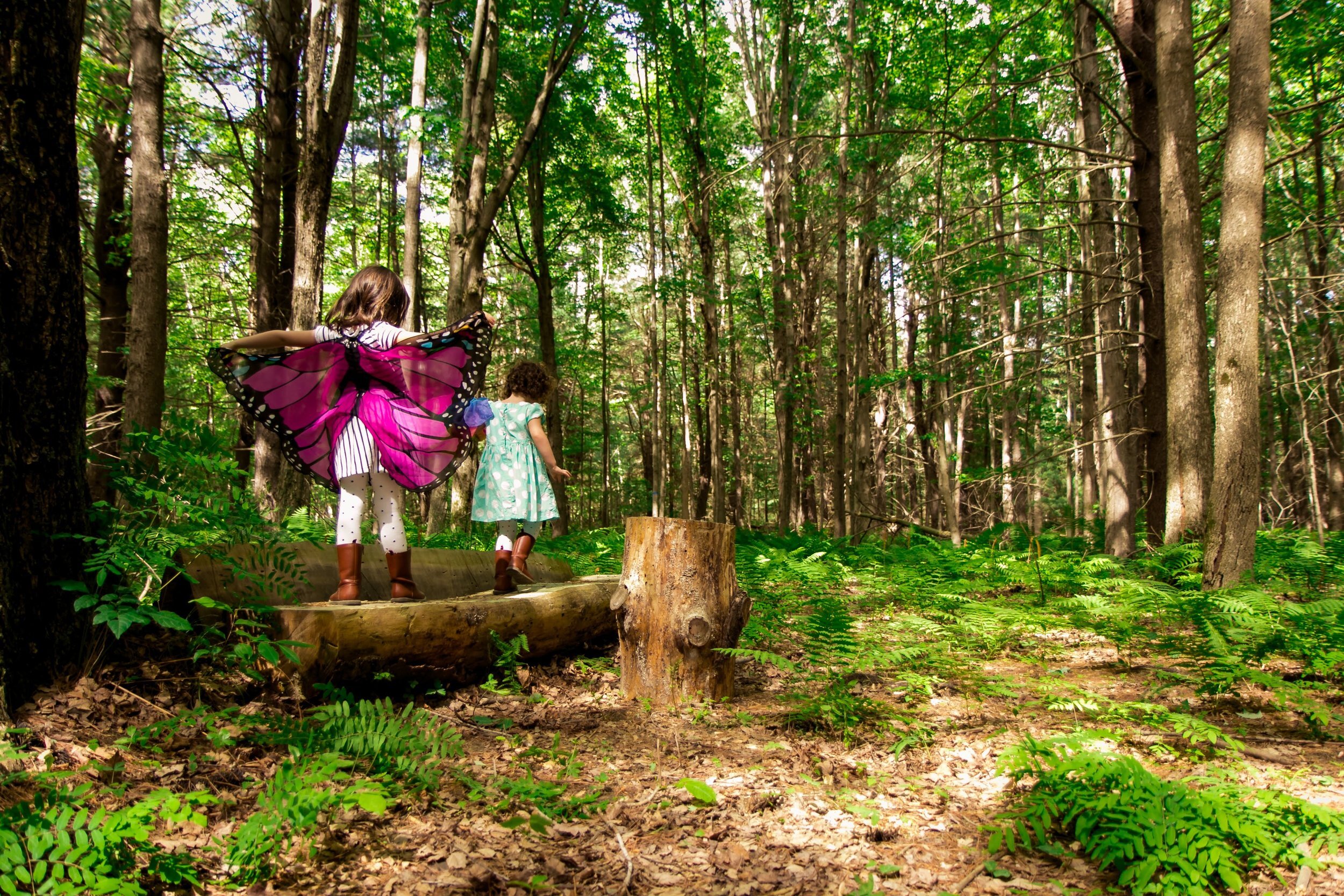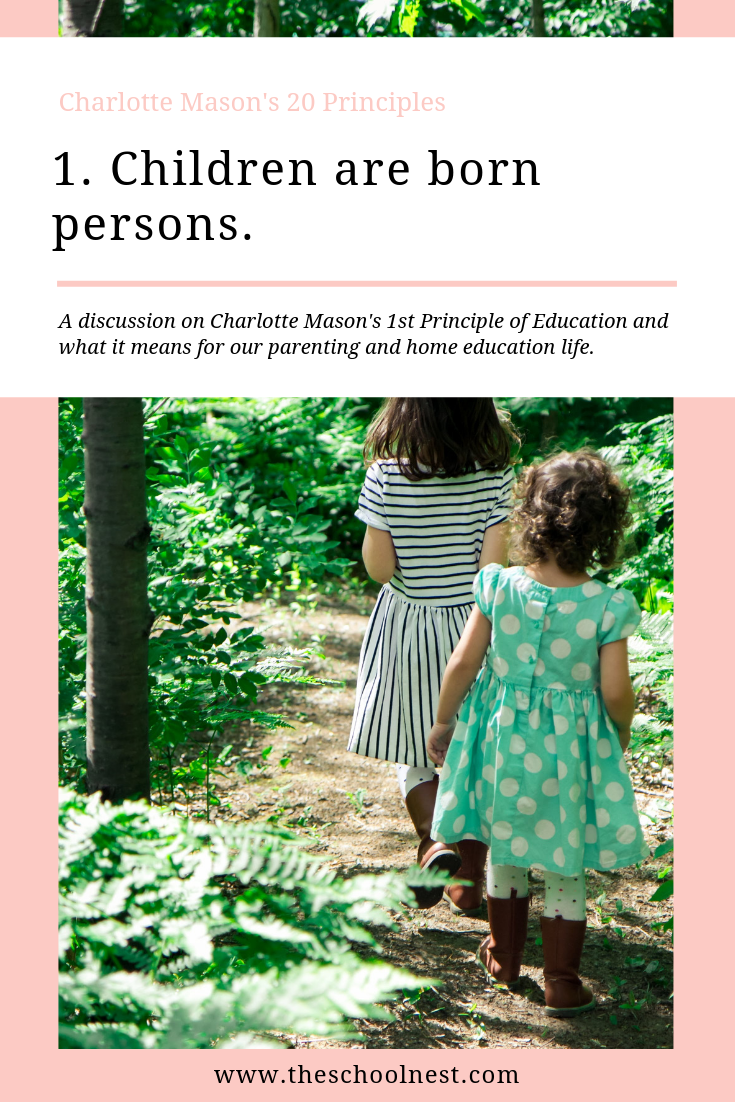Charlotte Mason's Principle 1: Children are Born Persons
“Children are born persons.”
The very first principle that Charlotte Mason lays down is the overarching philosophical thought of all of her ideas. To really grasp this one idea will put the rest of her approach into perspective. She says that children are born persons. The phrase isn’t so familiar the way she wrote it, but to put it in the most simple terms I can, I read it as:
Children are whole people, just as they are.
I don’t mean they are tiny adults. They don’t yet have fully formed opinions, their brains are still growing, they have lots to learn. But they are born with their own individual personhood. From the beginning of them, they've had their own mind, their own personality, and their own free will.
So often, society doesn’t really see children. Their opinions don’t matter. Their emotions are belittled. We group them up and treat them like products. Input discipline, output better adult later in life. Input math facts, output report card grade. Their capacity for a broken heart is the same as yours. Their right to achieve their greatest potential is equal to yours.
“We have been so long taught to regard children as products of education and environment, that we fail to realize that from the first they are persons.”
In any given moment, we can check a situation to see if children are being treated like whole people. Are their needs as important as mine? Are their thoughts as considered? Are their opinions as heard? Are we trying to mold their personalities, or do we honor the people they already are? Would I be healthy if I ate that school lunch every day? How would I feel if my behavior were constantly monitored and publicly displayed on a chart?
When we start thinking of our children as their own people, it changes things.
Children are born with amazing, curious, capable minds. Minds that question and process and have ideas all on their own accord. They don't need us to tell them how to think and ponder and wonder. They need us to put them in front of interesting ideas.
Every person has the right to a rich, full educational life. Minds are hungry for this, and these educational rights are not only for the end goal of career readiness or even life skills. The goal is to feed the mind with ideas, just as we nourish the body with healthy food. We don’t eat so that we may one day live, we eat because we are alive right now. Ideas, education, and experiences should be approached in this way too!
Not only is the child's mind and personality already formed when they arrive, so is their heart. Children are born naturally full of the capacity to love, better and easier and more freely than any of us do as adults. Their conscience is alive and well within them, knowing deep down right from wrong, good from bad, just from unjust. They’re influenced heavily by their environment of course - but so are we, as full grown adults.
Every child is full of immeasurable possibility. We don't have to mold them like clay, or force them into the shape we want them to be. That wouldn't respect their personhood. We are to be the warm sunlight, the cool rain, watching in awe as they grow into who they are meant to be.
Sometimes, it also helps to think of the opposite of this, to really cement into our minds what it means for us to see our children as full, complete people. I know it helped me to have some examples, since this is all very conceptual. When we don’t see them as “born persons” these things can happen:
Thinking of a child as a product, and that all of the things we put into them will turn out the desired product. They are more than just products of their environments, and so are we.
Bribing, coercing, rewarding, or punishing children to mold their behavior for our convenience. "If you are quiet and listen to this story, then you can have a treat!" or "Don't you want to do a good job? I will be so proud!" Manipulation isn’t respect.
Only providing them with what we think will fill them up with skills and facts, but neglect to provide them with beauty and deeper ideas. This could look like memorizing the names of the US Presidents, but not reading aloud a touching biography of the life of Abraham Lincoln. Prioritizing knowing over caring.
It could be leaving out the enjoyment of art, the exploration of music, and the life-giving power of spending time in nature. These are as educationally valid and needed as algebra. Or depending on the child, maybe more valid ;)
What can we do today with this idea?
With the idea that children are born persons, what can you do today to notice or act on this? Write down something actionable in your journal or planner to bring Charlotte’s first principle into your daily life!
Maybe it could be as simple as stopping to really listen as your three year old tells you her fear or concern. Maybe she doesn’t actually want to do gymnastics, after all.
Perhaps it might be stepping back a bit when they play, and listening rather than inserting yourself into their play world.
What would happen in your homeschool if you stopped prodding for answers, and instead started asking questions together?
Are they being provided what they deserve as learning, growing people in the world? Wholesome foods, space and time to run and climb and move their bodies, an environment for healthy sleep habits, the gift of learning habits that will help them function more easily in the world as adults, time in the sun and rain and snow, time to decompress, loving support, someone to listen, family, friendship.




